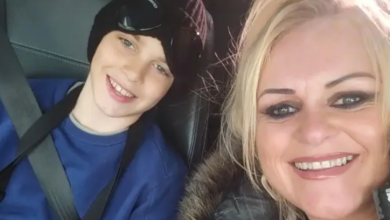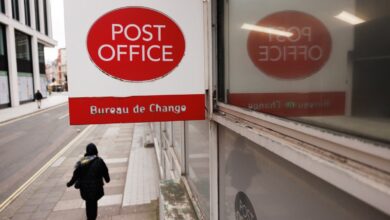Dozens of teenage girls trafficked and exploited in first ever modern slavery fraud case

Dozens of teenage girls have been trafficked and exploited to commit acts of fraud by an organised crime group in what is believed to be the first modern slavery case of its kind in UK law.
Four members of a criminal enterprise based in Cambridge, London and Essex have been convicted of modern slavery and fraud offences after at least 30 vulnerable girls aged 14-17 were recruited and used to carry out theft and fraud for the gang over a period of more than two years.
Most of the victims were recruited via social media while housed in foster placements or semi-independent living facilities, and many suffered from abandonment issues or had learning difficulties such as ADHD. It is thought that the gang targeted girls with existing vulnerabilities.
The girls would be driven to established retailers across the UK and told to ask for refunds on high-value items using fake receipts and barcodes produced by Isaiah Olugosi, 38, who orchestrated the operation. They were also sometimes told to shoplift high-value goods.
On 20 May 2021, Olugosi, of Lower Road in Cambridge, pleaded guilty to conspiracy to arrange or facilitate the travel of children for the purposes of exploitation, two counts of conspiracy to defraud, money laundering and possession of articles for use in fraud at Snaresbrook Crown Court.
It is believed to be the first time the Modern Slavery Act has been applied to a fraud enterprise in UK law.
The UK’s independent anti-slavery commissioner Dame Sara Thornton said she welcomed the use of the Modern Slavery Act legislation to deal with this “substantial and serious exploitation of vulnerable people”.
“It is really encouraging to see police and prosecutors using the trafficking legislation rather than opting for lower level offences which might be easier to prove,” she added.
Olugosi’s victims would often be missing for several days, committing fraud during the day – driven by the gang on pre-planned routes to target branches of each retailer – and being housed in hotels each night, where gang members are alleged to have sexually exploit at least two of them.
A typical day would include theft and fraud from over ten stores, making thousands of pounds per ‘route’ for the gang. The funds gained were laundered through at least 100 UK bank accounts, often in the girls’ names or those of adults with mental health problems and other vulnerabilities.
If they were stopped by security they were left to deal with the consequences and in some cases this meant them being abandoned many miles from home.
Senior Crown Prosecutor Marie Olo, of the CPS, who charged the case, said the girls were “selected because they were vulnerable with difficult backgrounds or mental health issues”, and that when they were caught, Olugosi was “perfectly willing to step back and let them face arrest and potential prosecution”.
In a statement to the court, one of the victims, who has ADHD and a personality disorder, said: “My bank accounts have since be closed due to the amount of refunds that they put through my account. I can no longer receive my disability allowances and this now has to be paid into my mum’s bank account. This whole situation has been playing on my mind, it has affected me mentally.”
Another victim said: “I look back at that whole time and feel I was stupid and vulnerable and taken advantage of […] I am shocked that they have been getting away with this for so many years. It’s like they are the mafia.”
Sergeant Pj Jones, of the Metropolitan Police’s Predatory Offender Unit, who worked on the case, said text messages showed the defendants talking about the girls “as if they were cattle”.
“The way they were discussing the girls was as a commodity. It was, ‘we haven’t fed them yet’. ‘What are you gonna feed this one?’ and ‘That one belongs to me, that one’s my one. No, no, you get your own girls, I’ve got mine girls in this route’,” he told The Independent.
One girl alleged that she began a sexual relationship with Olugosi when she was 17 years old and that he hid from her the fact that he was married. She took an overdose the day she decided to stop working for him, she told the court while giving evidence.
The criminal group yielded approximately £500,000 in profits as a result of the large-scale fraud conspiracy between January 2018 and March 2020.
To evade authorities, mobile telephones and vehicles were registered at addresses of adults with mental health or sever learning difficulties.
Notes on one of the gang member’s phones show how they calculated the profits made from the fraudulent activity
Text messages between Olugosi and Eva Dambrauskaite, who was tasked with recruiting and managing the vulnerable young girls





